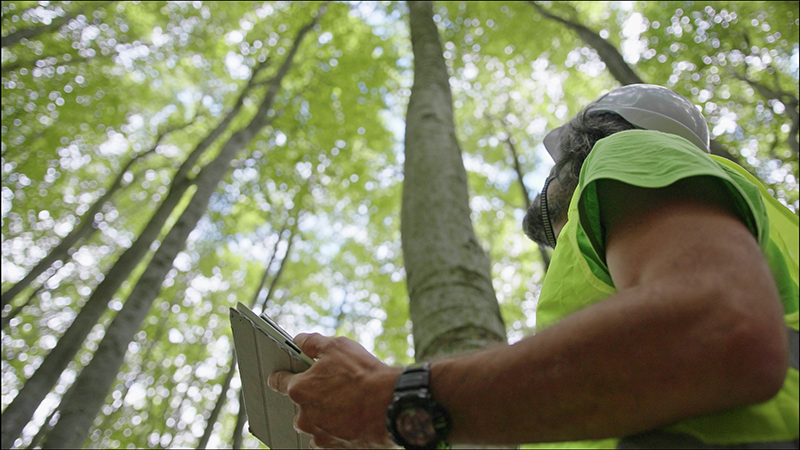Sustainable Solutions
Conner Provides Sustainable Solutions
As a leading provider of industrial lumber and transportation packaging, the principal raw materials used in our products are solid wood and paper goods. Wood fiber is one of the most renewable resources on the planet due to responsible harvesting and the planting of new trees. In addition, lumber is one of the most effective and naturally occurring “carbon sponges” available – a term coined by environmentalists to define organic and inorganic carbon-capturing technologies.
Responsible Harvesting as an Industry
To justify the use of lumber products and increase supply chain sustainability, we must give more than we take. In the United States, lumber companies are planting 33% more trees than they are harvesting every year. According to Treehugger, there are 380% more trees in American forests than there were a hundred years ago.
As an industry, we understand more about the harvesting cycles of trees now than ever before. Rather than slashing old-growth forests that create unique and irreplaceable ecosystems, the lumber industry has transitioned to a much more responsible harvesting process. Harvesting softwood lumber in cycles, rather than all at once, allows patches of trees to mature 20-30 years before they’re ready for harvest. The industrial lumber industry not only increases supply chain sustainability, but it also supports American forests.


Carbon Capture
When trees engage in photosynthesis, they take the CO2 from the atmosphere, separate the two compounds, and release oxygen back into the atmosphere. The carbon is stored in the tree and used as fuel for growth. That carbon continues to be stored in a tree’s lumber after the tree is harvested. Because of this carbon-capturing function, lumber products are considered carbon-negative materials and help build more supply chain sustainability into manufacturing processes.
Unfortunately, the same can’t be said for alternative transportation packaging materials, such as plastic, steel, or foam. We are always looking for alternative ways to reduce the use of these types of materials in our packaging whenever possible and take advantage of new innovations in the packaging industry that help to reduce carbon and improve sustainability.
Sustainable Packaging Design
Although we primarily use wood in our packaging designs, steel, plastics, and foam are sometimes necessary as well. As transportation packaging continues to evolve, we’re always on the lookout for smart solutions to keep your total costs down, but we also design custom packaging to ensure that we’ve minimized the use of wood fiber, plastics, steel, and foam as much as possible.
Additionally, Conner designs custom packaging that optimizes the space needed on trucks and trailers. By using less transportation space to move the same number of products, we use fewer trucks and reduce fossil fuel usage.
Creating smart and efficient packaging products has been part of our design philosophy since day one. Conner always looks for that sweet spot where your packaging has the least materials used, while still optimizing your supply chain and protecting your products. It’s not only cost-effective, but also helps meet sustainability goals. We are committed to working with our customers to use fewer materials in their packaging and we’re always pursuing alternative packaging materials.

